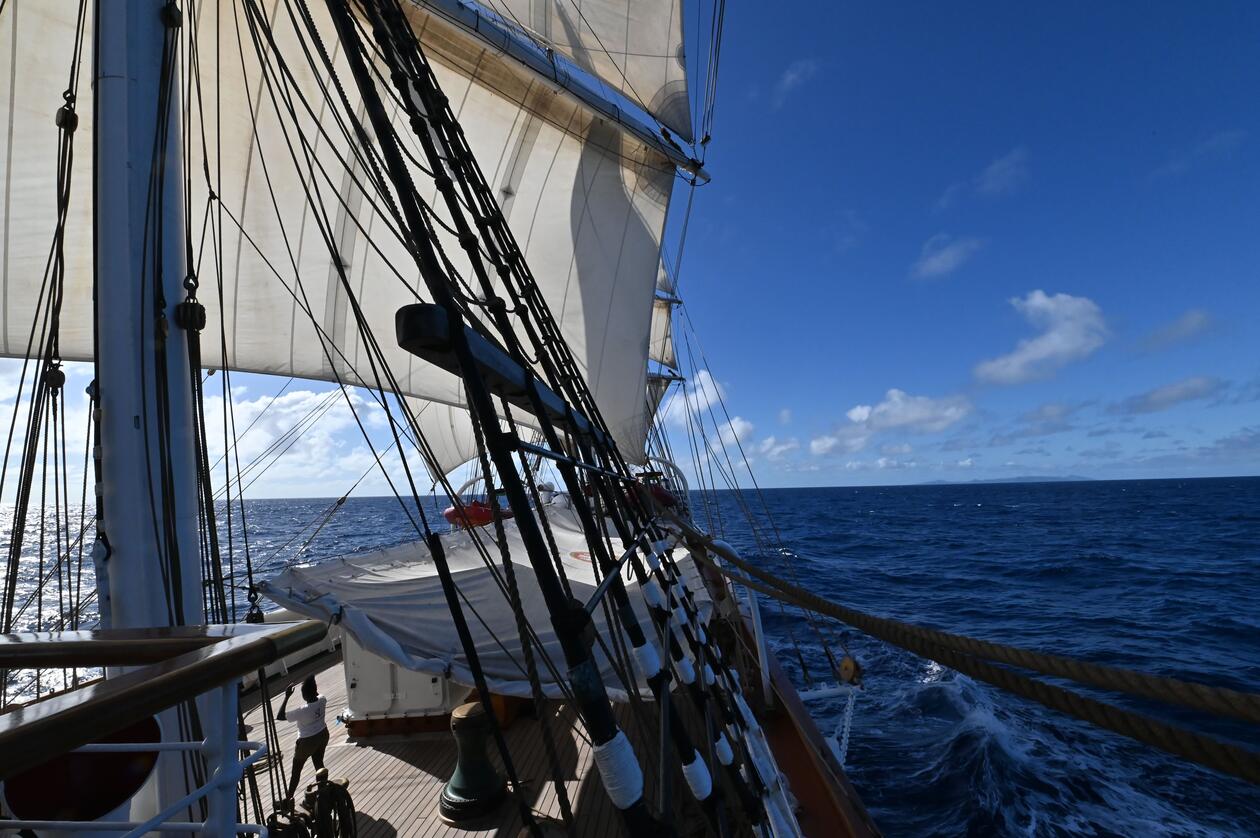Ocean Futures: Dialog for et bærekraftig hav
På Ocean Futures under One Ocean Week samles diplomater, politikere, forskere, og andre aktører for å diskutere hvordan vi best kan forvalte havets skjulte skatter og skape et hav av muligheter. Arrangementet vil være på engelsk. Gratis og åpent for alle. Velkommen på Litteraturhuset i Bergen tirsdag 18. april klokken 18! Arrangementet vil bli strømmet.
Hovedinnhold
- Se opptak av arrangementet på YouTube.
- Les denne kronikken fra Khrono som bakgrunn for arrangementet.
I mars ble det vedtatt en ny havavtale i FN i New York etter 19 års forhandlinger. Den nye avtalen bygger videre på havrettstraktaten og skal sikre at 30 prosent av havet vernes innen 2030. På arrangementet Ocean Futures tirsdag 18. april klokken 18.00-19.30 på Litteraturhuset i Bergen vil vi se på hvordan den nye havavtalen henger sammen med FNs naturavtale, som senest ble oppdatert under COP15-forhandlingene i Montreal i desember 2022.
- Arrangementet er gratis og åpent for alle interesserte!
For å belyse dette har vi fått med oss representanter som deltok i forhandlingene på vegne av Norge og slik kan gi førstehånds beskrivelse av både forhandlingene og innholdet i avtalene som ble inngått. Deretter vil et panel bestående av representanter fra FN-systemet, diplomati og akademia diskutere hvordan de to avtalene er gjensidig avgjørende for å få det bærekraftige havet verden trenger. Arrangementet vil være på engelsk og vil bli strømmet.
Beskrivelse av arrangementet på engelsk:
This One Ocean Week high-level event looks at a complex global set of challenges for the future of the ocean: How can we best manage marine genetic resources (MGR) and their potential for the emerging blue-green economy? How can we successfully harvest the treasures of the ocean without unsettling the ocean’s ecosystems?
Organised by
The University of Bergen (UiB)
with co-organisers:
The Institute of Marine Research (IMR)
The Norwegian Academy of Science and Letters (DNVA)
The Research Council of Norway (RCN)
When and where:
Tuesday 18 April 2023
18:00-19:30
Litteraturhuset i Bergen, Østre Skostredet 5-7
In December 2022 policy makers, scientists and diplomats met in Montreal for the COP15 meeting of the UN Convention on Biological Diversity (CBD) and agreed on the Global Biodiversity Framework (GBF), which has created a platform for the world to preserve and take care of nature at large. And in March 2023 the negotiations in the Intergovernmental Conferences on Biodiversity Beyond National Jurisdiction (BBNJ) finally came to an end after more than 15 years to reach an agreement. Both these complex instruments show how difficult it can be to balance the need for conservation and exploitation/extraction of resources, not least in terms of ownership of MGR and access to benefits arising from them.
However, benefit sharing from natural resources is a contentious issue, understood quite differently by the rich countries of the global north and the countries of the global south. The notion that the ocean may contain MGR which have the pharmacological potential to cure the diseases of the world, point to shared global issues, as well as scenarios of high conflict and inequality.
MGR include the genetic information hosted by marine organisms, enabling them to produce a wide range of biochemicals that can benefit humankind through applications of biodiscovery of pharmaceutical compounds, cosmetics, food supplements, research tools, and industrial processes. An understanding of the structure and function of the genetic diversity of ocean life is also crucial for assessing adaptation potential in a changing climate, and for the conservation and sustainable use of marine biodiversity.
In this One Ocean Week event we are looking at how the CBD and the BBNJ negotiations are tightly connected and how important the implementation of legal instruments for the high seas is for attaining the goals set at COP15 and in the 2030 Agenda. The event is also a contribution to ongoing work in the UN Decade of Ocean Science to increase ocean literacy at all levels, from policy makers to the general public.
We ask:
- How will the future governance of the ocean be now that a BBNJ agreement for the high seas has been reached?
- What is the future ocean in relation to the big questions of the nature crisis?
- How do we preserve the ocean in recognition of its role and potential to provide solutions to crises of both nature and humanity?
PROGRAMME
Welcome by:
- Rector Margareth Hagen, University of Bergen
- Acting Director for Sustainable Development of the society Christina Abildgaard, Research Council of Norway
Introductory notes:
- Marie Teigen, Adviser at the Norwegian Ministry of Foreign Affairs speaks on the Biodiversity Beyond National Jurisdiction (BBNJ) agreement
- Gaute Voigt-Hanssen, Norwegian Ministry of Climate and Environment, Chief Negotiator to the Convention on Biological Diversity speaks on COP15 framework for biological diversity
Panel discussion:
- Peter Thomson, UNSG’s Special Envoy for the Ocean
- Vidar Helgesen, Co-chair of the UN Ocean Decade Advisory Board
- Henrik Harboe, Norwegian Ministry of Foreign Affairs, Prime Minister’s Special Envoy for the Ocean
- Lise Øvreås, President of the Norwegian Academy of Science and Letters (DNVA)
Moderated by Peter Haugan (IMR) and Edvard Hviding (UiB)
